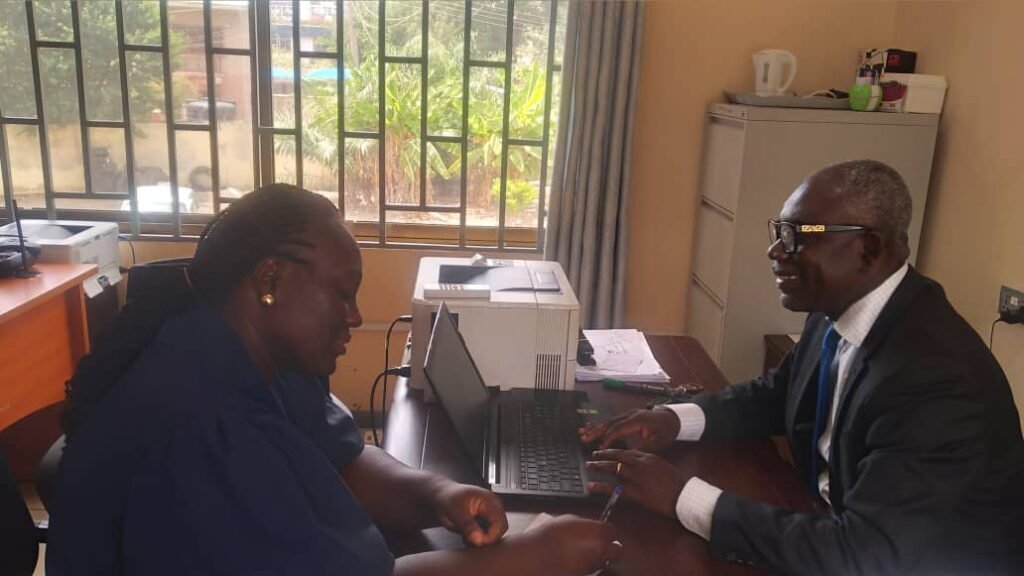ARTICLE AD
At least 36 critical hotspots have been identified across the country by the National Peace Council (NPC) as places where electoral violence could erupt during the December polls.
Out of the number, the council has, so far, selected 26 of them, where engagements would be held with parliamentary candidates and electorates on political tolerance and solicit their inputs on how to resolve tensions.
 Our reporter in an interview with Mr Frank Wilson Bodzah
Our reporter in an interview with Mr Frank Wilson Bodzah
The NPC Deputy Director in charge of Conflict Management and Resolution, Frank Wilson Bodza, who disclosed this to The Ghanaian Times in Accra yesterday, withheld the names of the hotspots for security reasons.
In an exclusive interview on efforts by the Council to promote peace in the upcoming elections, he said, public awareness campaigns were being held in all hotspots.
Mr Bodza said after the 2020 elections, the Council visited communities, particularly those that experienced election violence, including Ablekuma Central and Techiman, where a total of three people lost their lives.
“Even though there was no record of death at Awutu Senya East, it had become one of the notorious hotspots in Ghana. So, we had to go back to them, sit down with them and ask what they needed,” he said.
Mr Bodza said a 15-member committee has been established to monitor compliance with the code of conduct on vigilantism, while another committee has been set up to monitor hate speech and indecent expression in collaboration with Media Foundation for West Africa.
“They monitor people who use the public spaces, including the media, radio, TV, and all that, to incite people against each other as well as politicians who incite their followers against their opponents,” he added.
Mr Bodza said the Council held follow up meetings with the prophets as part of efforts to reduce the spate of election prophecies which often stir tensions and conflicts.
He said the Council had engaged political parties at all levels on the use of peace, and had trained about 200 journalists on how to guard against the use of their platforms to propagate hate, misinformation and disinformation.
The Council, he said, last month, partnered Economic Community of West African States (ECOWAS) to train the political parties on political tolerance, peaceful election and the need to adhere to electoral rules.
“In protecting the democracy that we have, you have to follow due processes. If they say you should file within a certain period, you file within a certain period. If they said you should come and ballot at a certain period, you follow the due process and ballot within the ambit of the law,” he said.
Mr Bodza advised the people not to take the law into their own hands by going to attack their opponents, adding that electorates must promote peace and tolerance.
“If there are any challenges with the election result, you go to court because there has been provision for that. If you go onto the campaign platform, you are not talking to only your constituents or the people who vote for you. You are talking to the whole Ghana.
“The peace that we have enjoyed should be sustained. Leadership is not only about you winning a race. Leadership is also about winning today and losing tomorrow,” he said.
BY ANITA NYARKO YIRENKYI

 2 months ago
20
2 months ago
20 

